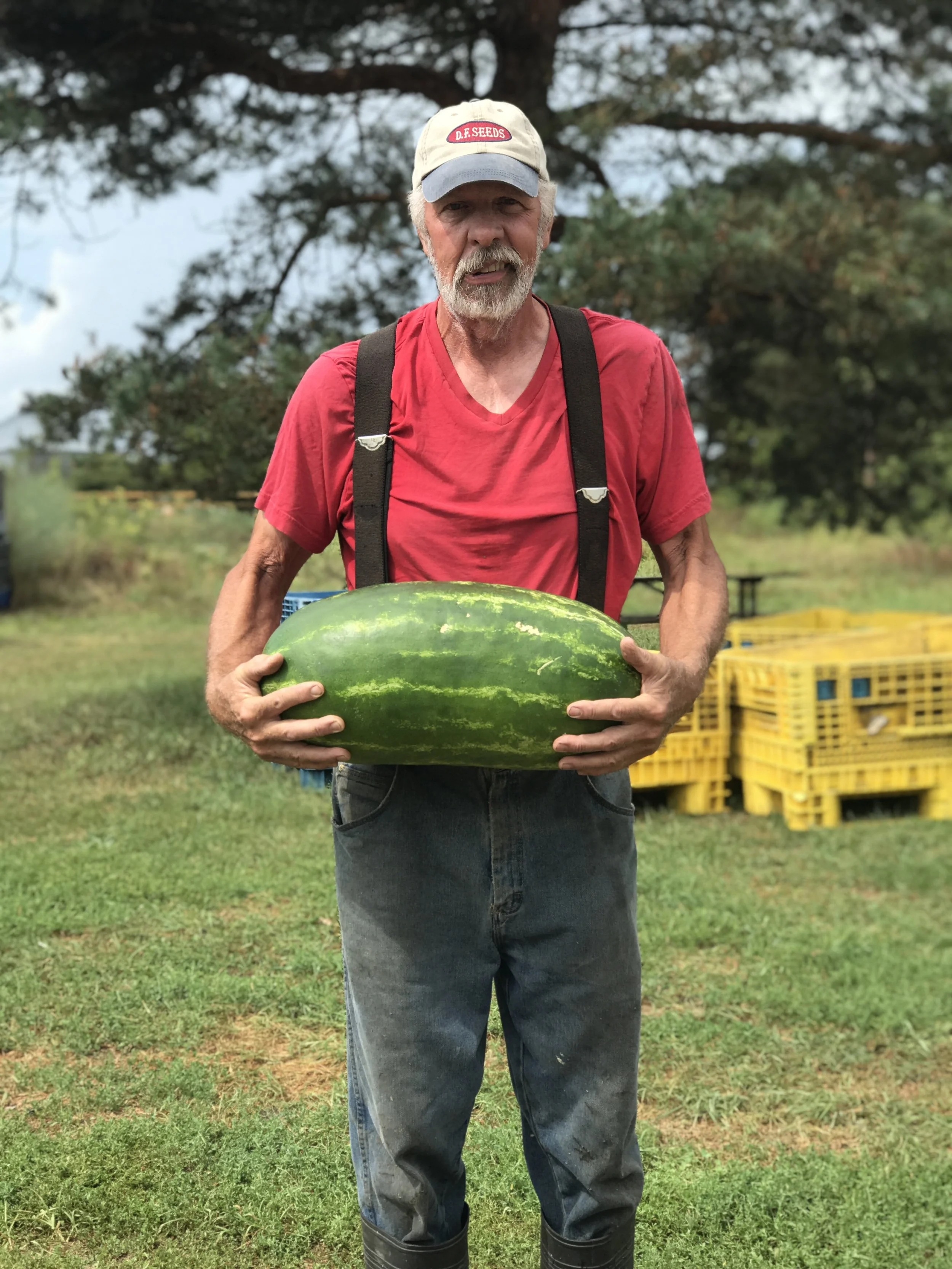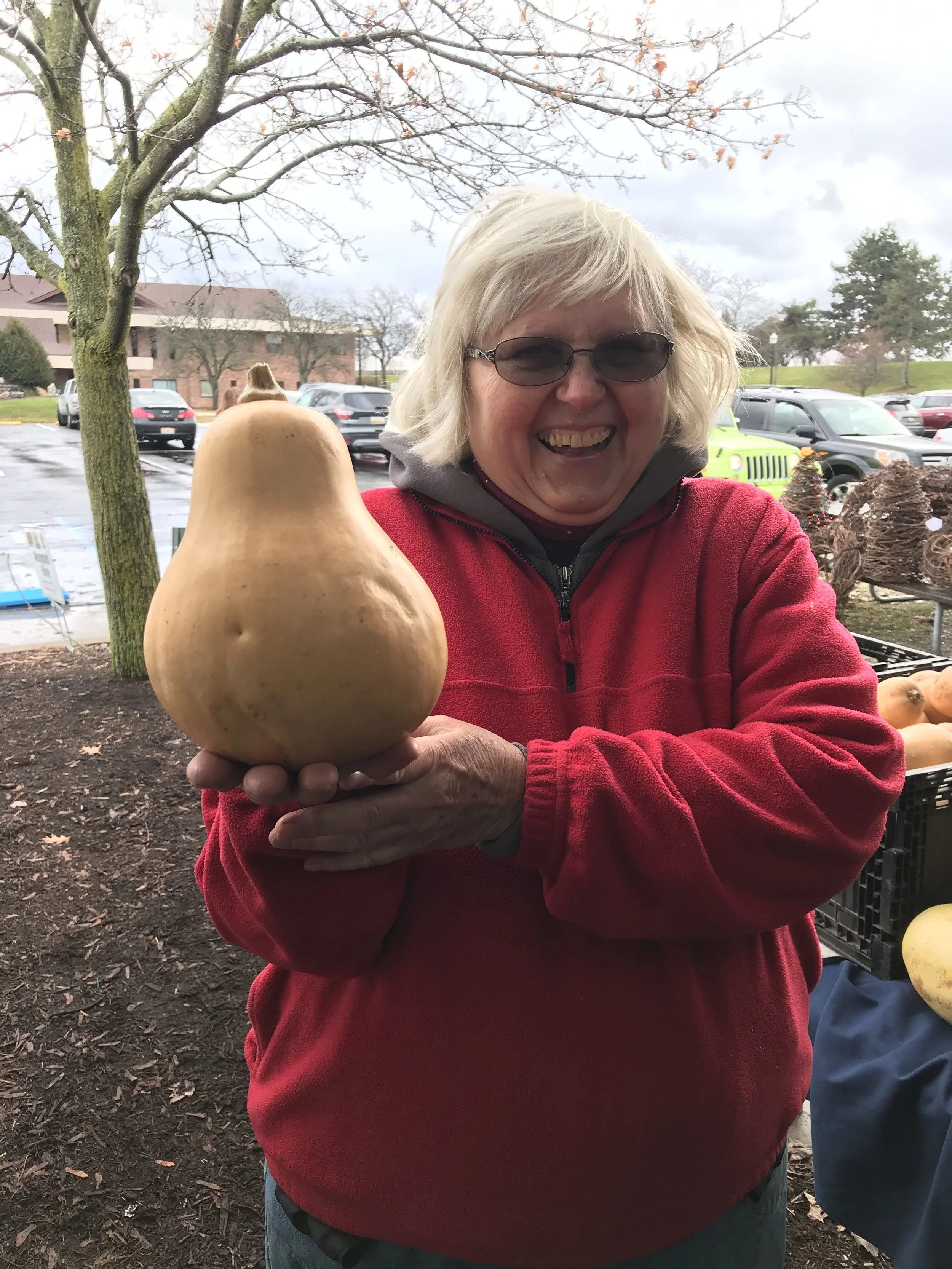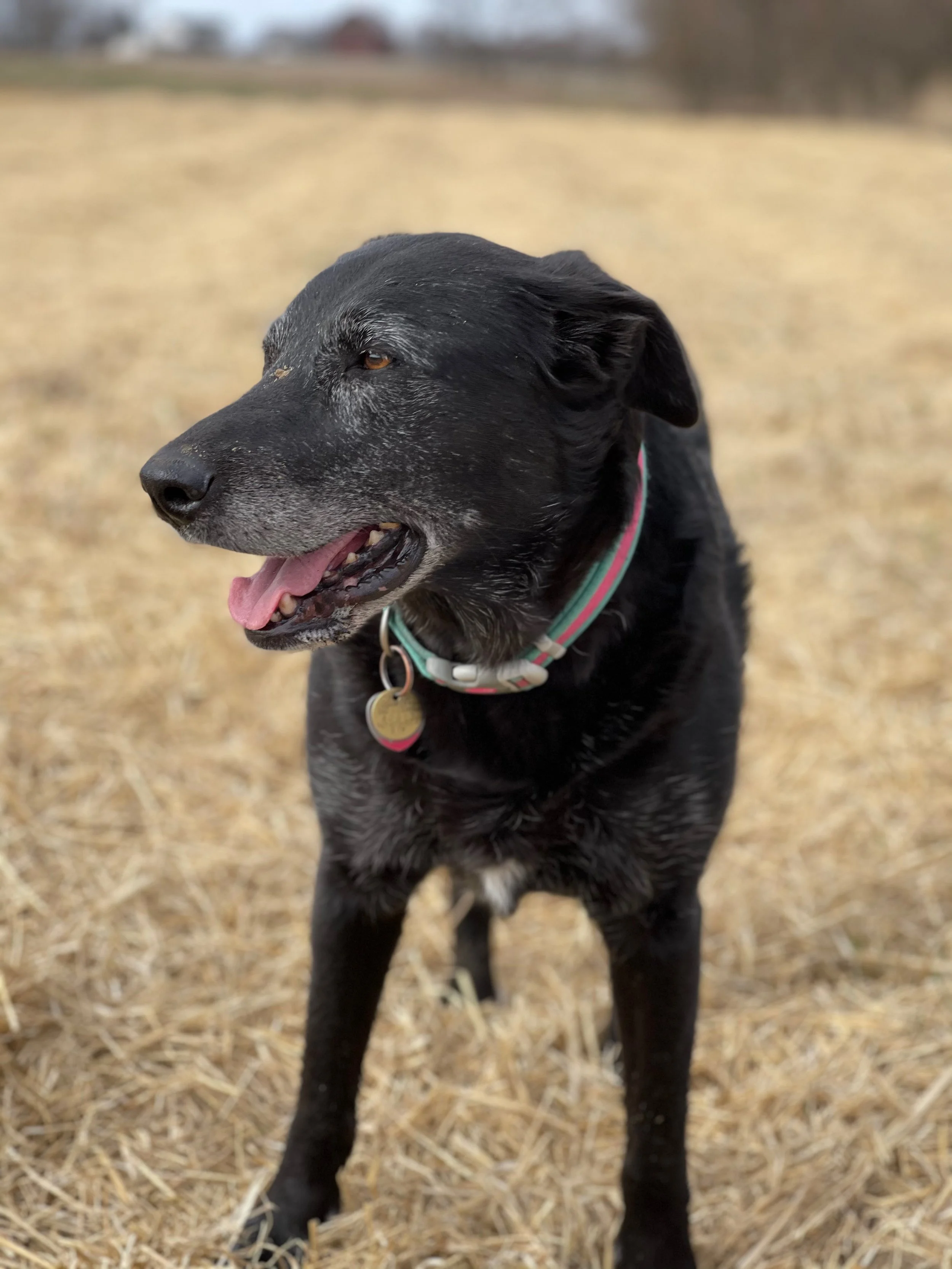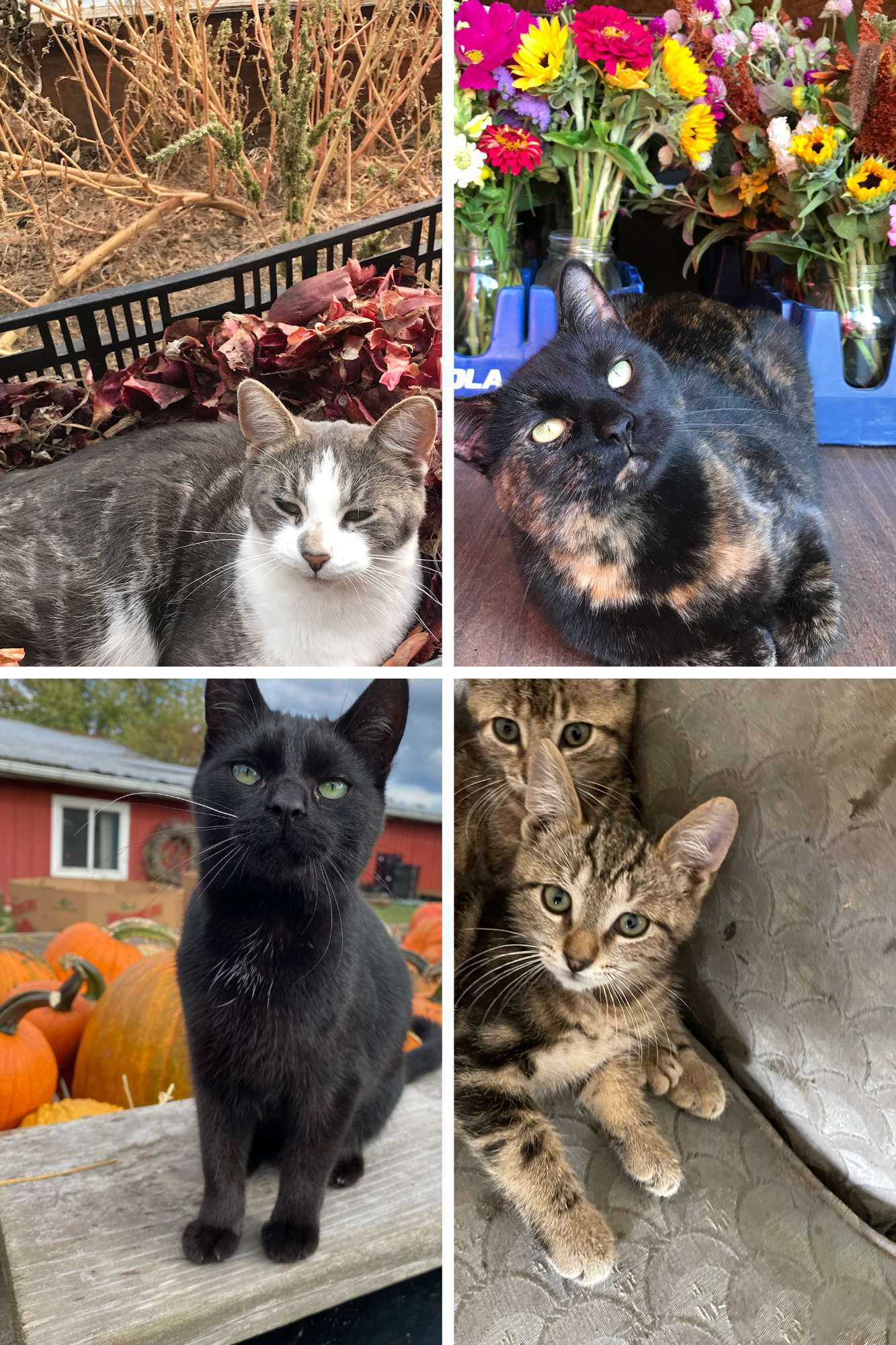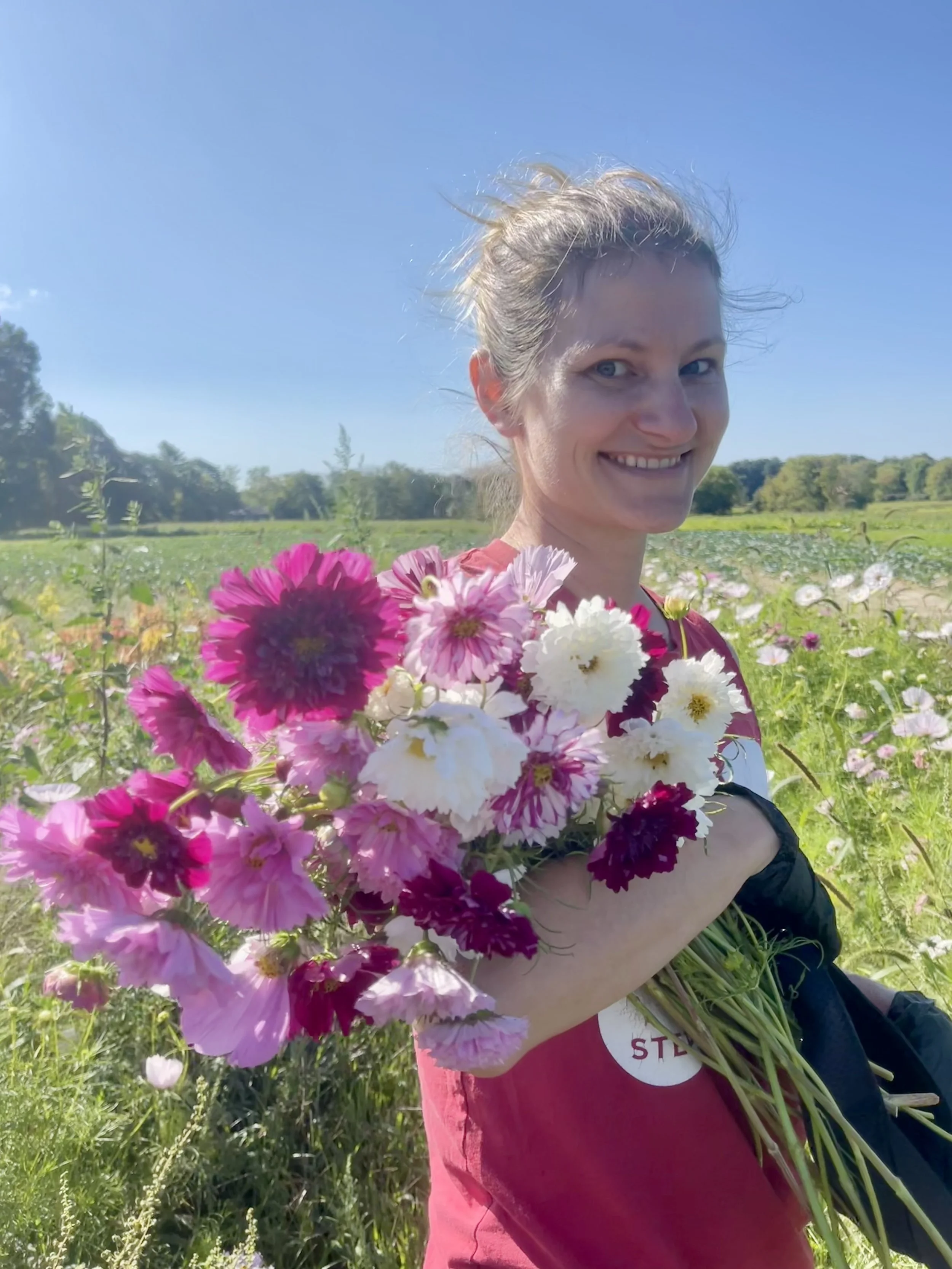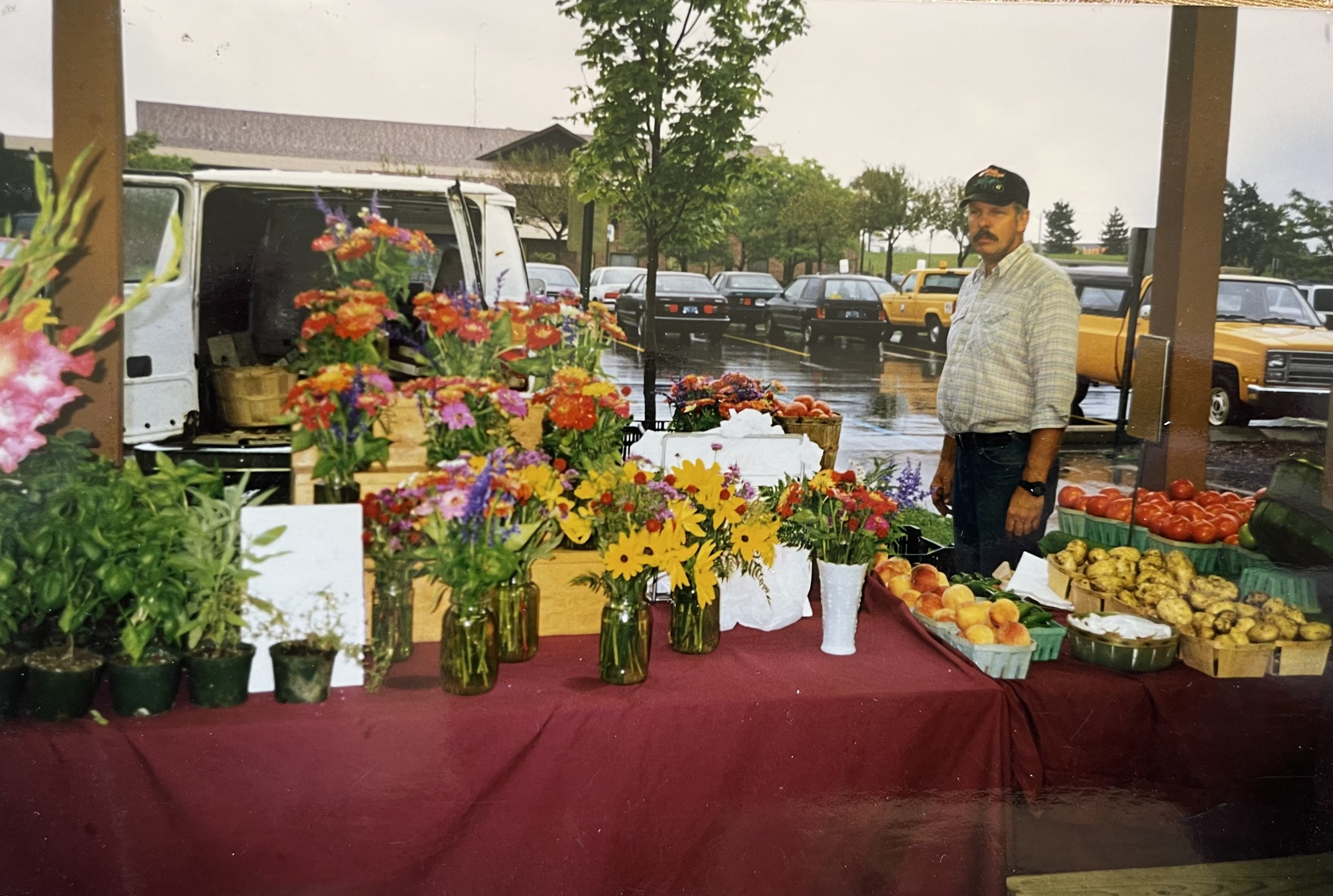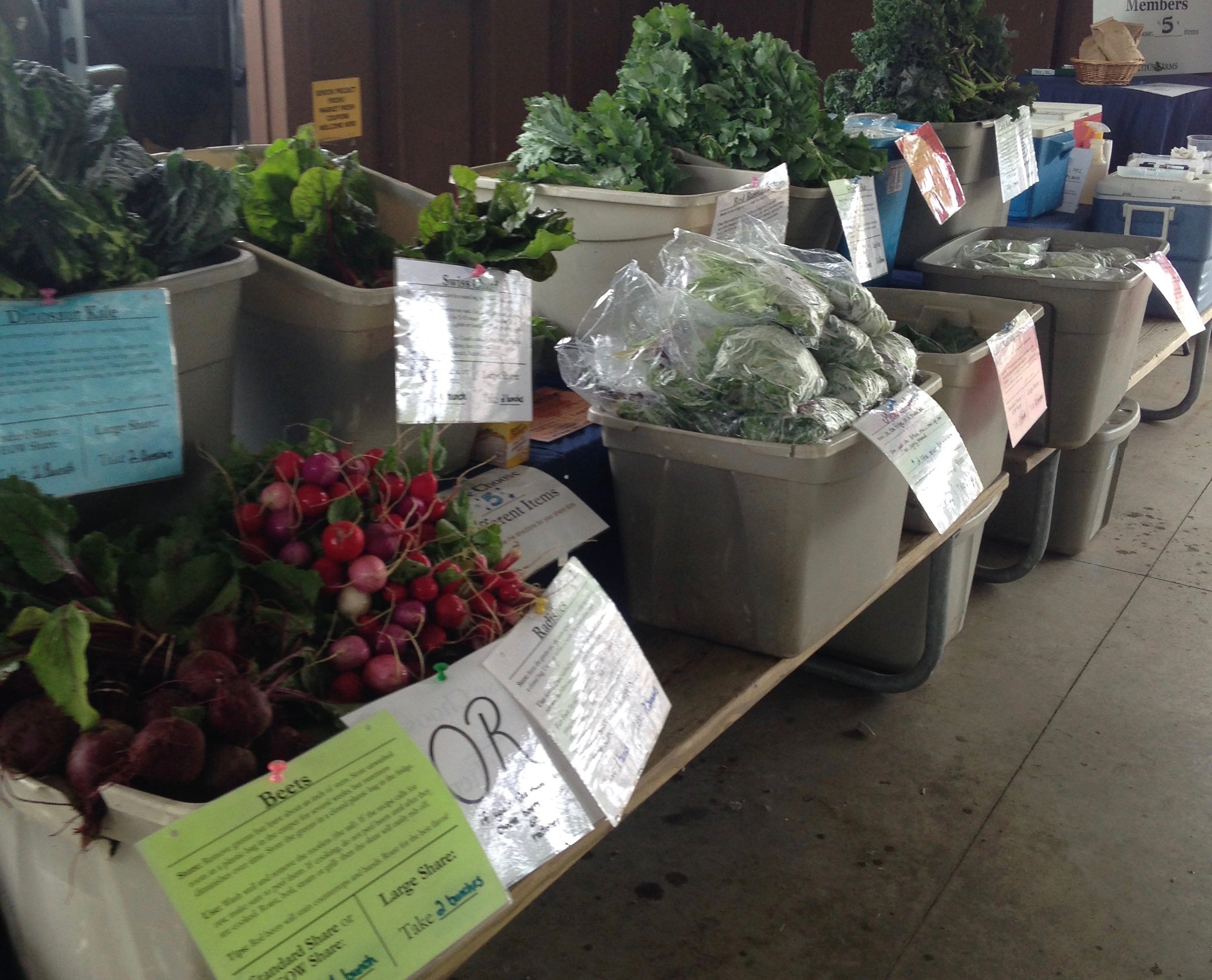
About Your Farm[ers]
Our farm practices at-a-glance:
We are a family-owned, small farm that uses organic practices but is not USDA certified organic.
Meet the Farm-ily
Our Farm Philosophy
CSA Pickup 2010
CSA 2024
Taste guides us.
Maintaining a high quality for our products by reducing the time between when we harvest and when you eat is key. By using unique varieties of vegetables, we keep our taste buds and tummies happier.
Good, whole foods feed us, too.
We eat the food we produce and want to ensure that we are providing you with nutrient-dense, whole foods to keep you healthy.
Organic methods keep the land healthy.
Your food is raised using sustainable, organic methods:
Using compost and natural fertilizers helps keep the soil healthy and productive.
Hoeing and hand-weeding keep us busy and the land free of herbicides.
Tending to bees and preserving the natural habitat around our farm are essential parts of maintaining a healthy ecosystem and our planet.
Keeping our land healthy for generations and our role as stewards of the soil is our highest priority.
But we love science.
Organic does not mean “chemical-free.” Nature does not always work harmoniously with everything we do, and sometimes, it is necessary to use OMRI-approved products on our farm. The science of chemicals has progressed a great deal for organic farms!
These pesticides, herbicides, and fungicides are never petroleum-based and generally do not subsist in the environment. We apply them carefully and only as needed.
Even certified organic farms widely use chemicals safely; many are plant- or microorganism-based.
Our Founding
Titus Farms was started in 1982 by Paul and Rose Titus. Both Paul and Rose grew up around Dansville, raising various animals and field crops as part of their respective family's farms. They also helped maintain a family vegetable garden, a mainstay for farming families.
Paul grew up wanting to be a farmer, but his family lacked land after his grandfather sold it during the Great Depression. The story passed down is that he did not want his sons to be farmers. His grandson had different plans!
Paul and Rose, both of Dansville, married in 1982 and started a life together on a small 20-acre parcel Rose had purchased by herself.
Paul tried raising traditional field crops on rented acreage, but the scale wasn't on his side. Then, while carrying Rebecca, Rose developed chemical sensitivities.
With their broad farming knowledge, they ventured into farming using only organic methods. Paul, always needing a challenge, also began to dabble in growing vegetables. While they found an ever-increasing audience for the farm's tasty vegetables, they also enjoyed raising these non-traditional crops and rearing their daughter in this environment.
As the demand grew for their veggies and cut flowers, Paul and Rose expanded their acreage by renting land from friends, neighbors, and relatives. The main drive to continue farming was for their daughter, Rebecca, to whom they hoped to hand the operation one day.
CSA Pickup in 2007
CSA History
Rebecca started the Community Supported Agriculture (CSA) program when she was 19 and still studying at Michigan State University out of a financial need to keep the farm afloat. Read the full story here…
The first year started with three locations: Okemos, Lansing, and On the Farm. With a little over 50 members and a lot of support from MSU professors, the inaugural season of experimenting with numbers, systems, and logistics began.
Those first CSA members were crucial in helping to refine the CSA system and communications and, ultimately, in teaching their farmers how to serve them best. We made lots of mistakes and learned a lot!
In the second year (still using dial-up internet folks), the CSA expanded to around 100 members and stayed the same while we settled into this new role. Since we began, the CSA has expanded yearly until 2009, when we reached 300 families.
CSA 2010-2020
From 2010 to 2020, Titus Farms’ CSA remained largely unchanged. Each year, the farm provided food to between 200 and 300 families in the Mid-Michigan area, with drop-offs in the Lansing area.
In 2017, the farm invested in an admin system called Farmigo to help with the backend of running the CSA. Members could now put their share on hold or switch locations online.
2019 marked the first year of pre-packed shares. Using the Farmigo software, CSA members could now receive a prepacked box on a given week.
Many people entered and left our lives in those years, and we were grateful to learn more about you, perfect our systems, build new infrastructure, and build our business.
CSA 2020-Present
The spring of 2020 marked many changes for the farm, as it did for the world.
When farmer’s Markets were shut down, we quickly pivoted to a pre-ordering system, using the online system Farmigo that we had been experimenting with. An online Farmer’s Market was born. All of our favorite vendors offered food or craft items, and each week, we would list them in our store. From mid-April to June, the farm was busy making lemonade from lemons.
CSA Pickup 2015
CSA 2020
During those early days of COVID, an intrepid group of farmers packed boxes of local goods outside in tents at the farm. Then, when CSA started up, we still practiced social distancing at the market and the farm, wearing masks even when outside sometimes. Home deliveries flourished that year, and our core farmers Karey, Kyle, Tina, and Jackie worked themselves ragged that summer to provide food in the safest manner possible.
The pandemic in 2020 significantly shifted consumer behavior, leading many to prioritize local food. Faced with uncertainty and supply chain disruptions, people increasingly sought out local farms and farmer’s markets, recognizing the importance of supporting their community's food systems. A fear of food scarcity partially drove this shift. However, from this shift, we still made life-long friends, and we hope, convinced some folks that supporting a local farmer can continue to support local economies and enrich communities.
2021 was a challenging year. We were burned out from the rush of 2020, and when we failed to find viable candidates to work steadily on the farm, we decided to take a year off from CSA.
In the following years, we implemented an entirely boxed system, with 2024 being our first year with a weighted credit system. We hope these changes have improved our farm in the long run, as we still work to ensure we can remain flexible enough to serve your needs and earn enough money to continue farming.

Titus Farms’ Land Acknowledgement
Our farm occupies the ancestral, traditional, and contemporary lands of the Odawa (Ottawa), Ojibwe (Chippewa), Wyandot, and Potawatomi peoples. In particular, the farm resides on land ceded in the 1807 Treaty of Detroit.
We recognize Michigan’s 12 federally recognized Native Nations, historic Indigenous communities in Michigan, Indigenous individuals and communities who live here now, and those who were forcibly removed from their homelands. In offering this land acknowledgment, we affirm Indigenous sovereignty, history, and experiences.
To learn more about land acknowledgment:
Native Land Digital (an interesting map system to learn about treaties, peoples, and languages)




